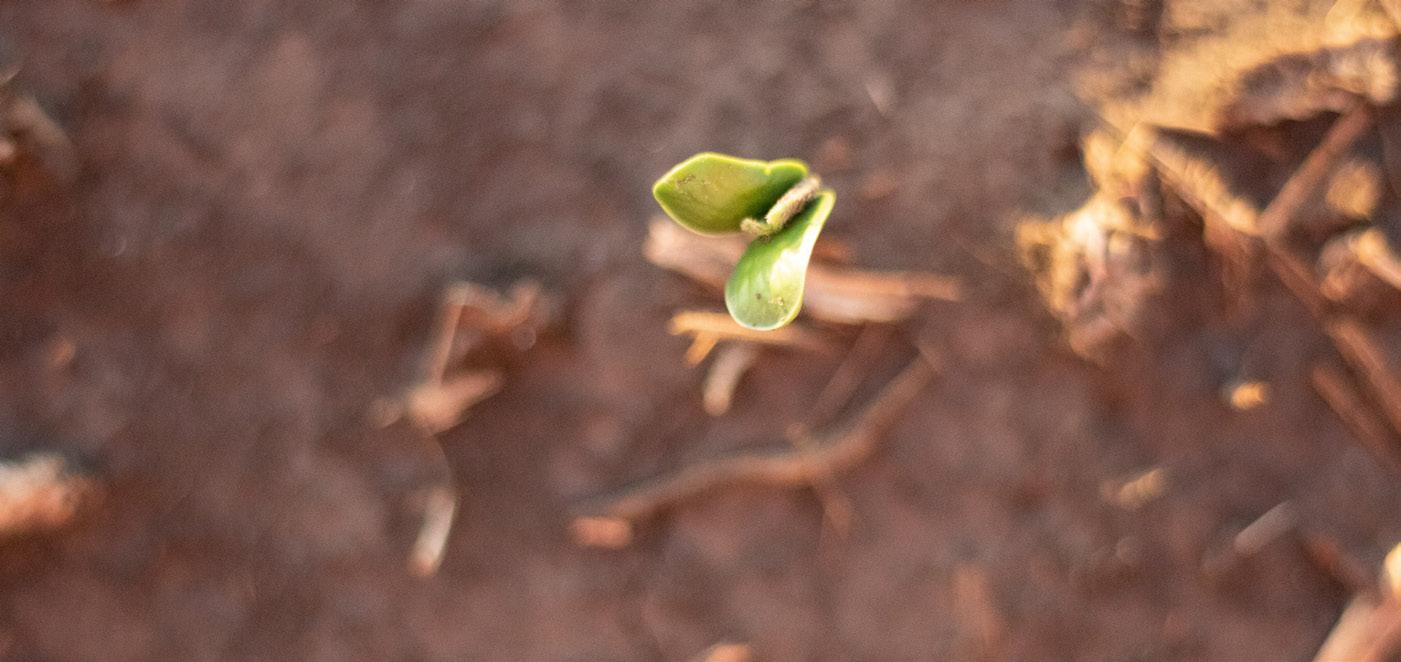






Jared Nash, Parsons, traveled the same route many Kansas-grown soybeans follow to see firsthand how the versatile bean adds value to other economies. Nash visited the Panama Canal, an aquaculture plant and more on the 2024 See for Yourself Tour led by the United Soybean Board.
Nash was excited to go on this trip to witness the checkoff at work. He believes the purpose of this program is to show soybean farmers how checkoff dollars are used to drive the demand for their product in other countries.
“This program brings value back to my farm and neighboring farms because I am better able to promote that the checkoff is worth the investment,” Nash says. “We pay to increase value of our soybeans and I have seen it firsthand.”
One pillar of the soybean checkoff is market development. See For Yourself demonstrates how the checkoff builds preference for U.S. Soy and facilities trust between growers and interna-

tional buyers.
“It shows everything from the trade aspect to how people have a better life because they have affordable, nutritious food to eat,” Nash says.
Panama has suffered drought recently, just like many places in the U.S. — including Kansas.
Due to the drought, changes have been made for the canal to still run efficiently while conserving water.
“Canal operators have adapted to the drought by restricting the number of ships that travel through each day, therefore using less water,” Nash says.
Continues on page 3


PRESIDENT’S MESSAGE by Scott Gigstad, Everest
Hello Kansas Soybean Farmers. I hope you all have had a nice February and March so far. One of the things I enjoy about farming is all the old adages used to predict the weather, like fog dates, ring around the moon, sun dogs and others. This year I had one show up that you don’t see every year: lightning in February means a freeze in May!
Volume 28, Issue 5 | March 2024
is published bi-monthly by the Kansas Soybean Association
1000 SW Red Oaks Place, Topeka, Kansas 66615-1207 phone: 785-271-1030 | fax: 785-271-1302
877-KS-SOYBEAN (877-577-6923) www.KansasSoybeans.org | info@kansassoybeans.org
2024 Board of Directors
District 1 Brett Neibling, Highland
District 2 Brice Bunck, Topeka
District 3 John Pracht, Westphalia
District 4 Matthew Atkinson, Columbus
District 5 Michael Musselman, Clifton
District 6 James Moreland, South Haven
District 7 Teresa Brandenburg, Russell
At-Large Jared Nash, Parsons
At-Large Brandon Geiger, Highland
Atchison County Scott Gigstad, Everest
Brown County Greg Strube, Horton
Cherokee County Roger Draeger, Galena
Doniphan County Josh Falk, Robinson
K-State Research & Extension Sarah Lancaster, Ph.D., Manhattan
K-State Agronomy Raj Khosla, Ph.D., Manhattan
Kansas Soybean Processors Jessie Smith, Emporia Kansas Soybean Commission Ron Ohlde, Palmer
American Soybean Association Charles Atkinson, Great Bend
American Soybean Association Andy Winsor, Grantville
Young Leader Adam Phelon, Melvern
Young Leader Daniel Anderes, Junction City
Young Leader........................................................................Ben Bellar, Howard
Young Leader................................................................Ryan Delaney, Osborne
2024 Executive Committee
President Scott Gigstad
1st Vice President Brett Neibling
2nd Vice President Jared Nash
Secretary Michael Musselman
Treasurer Brice Bunck
Chairwoman Teresa Brandenburg
Staff
Chief Executive Officer Kaleb Little
Director of Field Services Dennis Hupe
Director of Communications Amanda Manville
Director of Operations and Accounting Adam O’Trimble
Director of Programs and Outreach Jancey Hall
Communications and Membership Specialist.....................Josey Mestagh
Accounting and Administrative Assistant Meghan Bechard
Now, please don’t hang your hat on that information or hold for 5 dollar corn due to a late freeze, but with this unusually warm second half of winter we are having, I am afraid some kind of temperature averaging will take place in the form of a cooler spring.
2024 Commodity Classic this year happened in Houston, Texas. Much to my surprise, the event brought a record attendance despite lower commodity prices, higher interest rates, and weather issues in various parts of the country.
Some may wonder how Commodity Classic pertains to Kansas Soybean. It is where the American Soybean Association facilitates collaboration of the Kansas Soybean Association, and other state associations to produce the final policy resolutions document for the year. This set of policies is reviewed every year in case there are any additions, deletions or changes. The document is then used as a road map when speaking with legislators, attending ASA meetings and visits to the Hill.
Commodity Classic is also an opportunity to learn about markets and new technology, hear from some of our leaders in Washington, D.C., and network with other farmers from across the U.S. John Deere and New Holland unveiled new technology: 9RX 830HP quad-track tractor and CR11 high-capacity combine.
Sec. of Agriculture Tom Vilsack and EPA Administrator Michael Regan spoke during
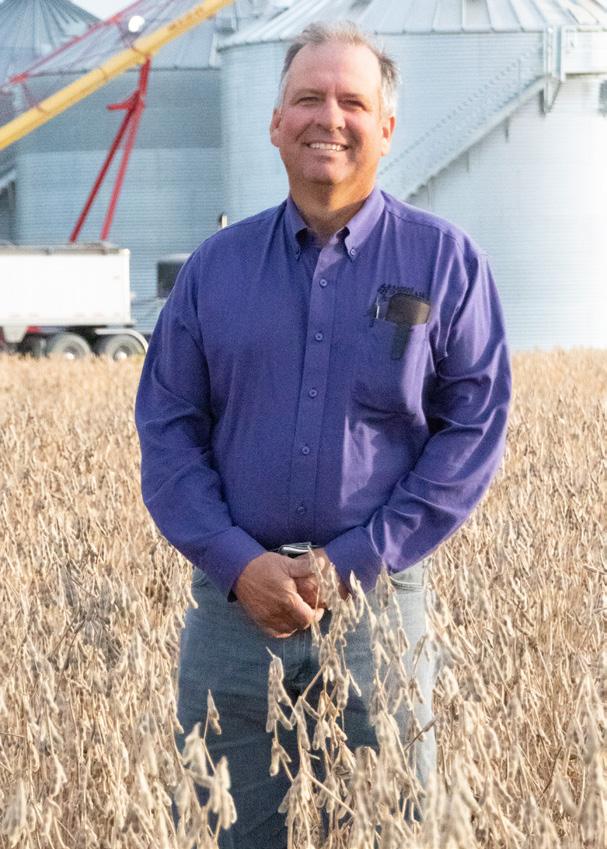
the general session. While we didn’t get as high of renewable fuel standards as we had hoped, or year-round E15 for 2024, they did assure us that agriculture is a high priority for the current administration. The EPA announced a new office, the Office of Agriculture and Rural Affairs, in hopes to bridge the gap. I hope that is true. This is why I think our memberships to KSA are important so that we can have a voice in national policy.
I hope that everyone has a safe and successful planting season this year. Our state has had many perils to overcome the last couple years and I truly hope that we can have a normal weather pattern that will bring some much-needed moisture to areas of the state that so desperately need it! Please be safe and take time to enjoy the true blessing of being in agriculture. For each of us that may look different, but it was all created by our heavenly Father, and for that we should be thankful.
Happy planting!
During the aquaculture plant tour, Nash saw one facility where U.S. Soy is utilized through soybean meal. At this particular plant, an eight-hectare pond contains 32 bunkers, each housing 35,000 tilapia. The plant is mostly red tilapia, with a small percentage of black tilapia. Nash continued to follow the process by watching workers in the holding pens grab the live fish and move them to the filet line.
Nash accompanied soybean farmers from other states in the Midwest and the east coast on this trip. To read more about this trip visit unitedsoybean.org/ see-for-yourself/.
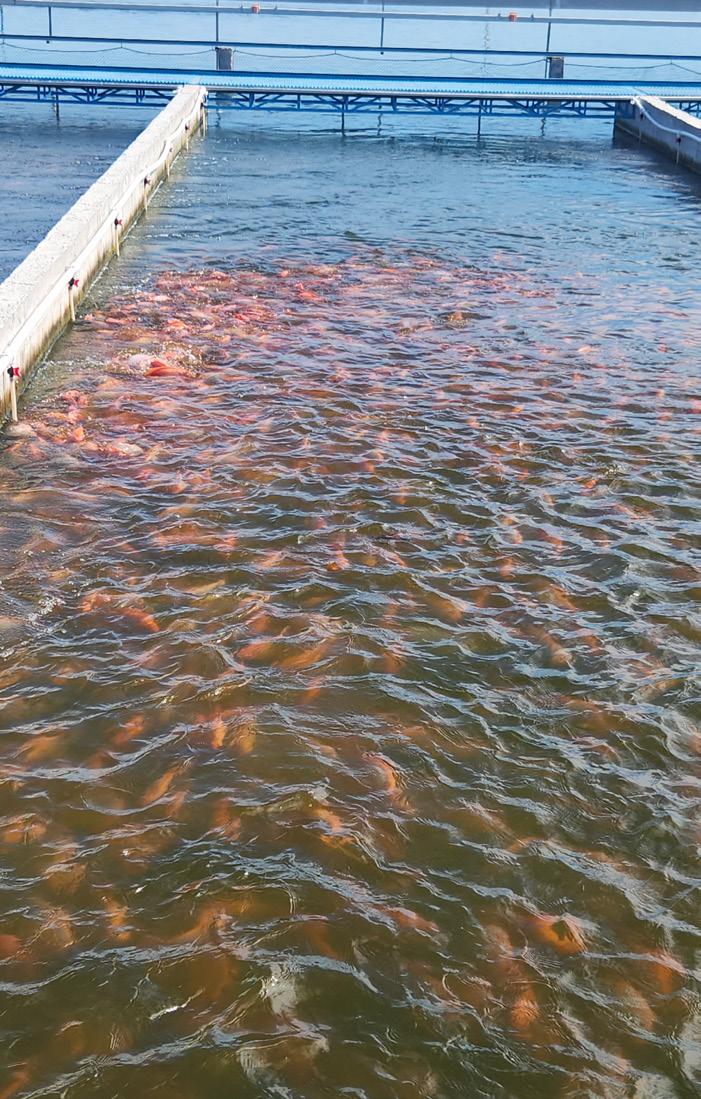
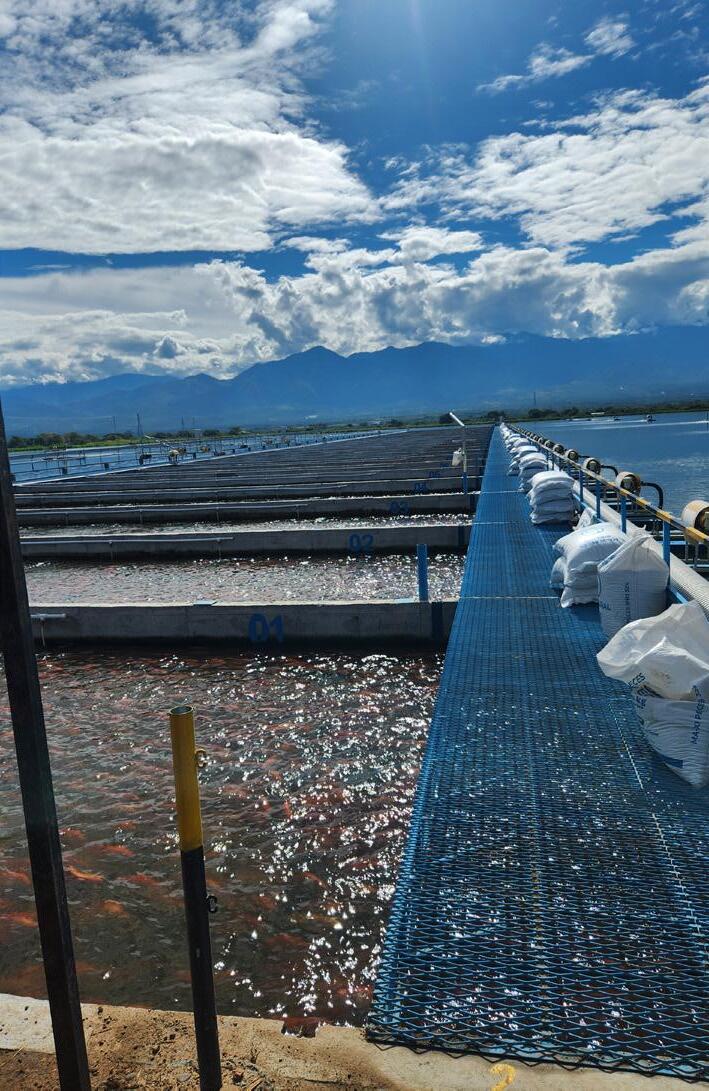
Being on a state or national soybean association board is more than representing your farmers, it is also about developing new skills and improving current skills.
Kendall Heiniger, Fairview hog and row crop farmer, participated in the Leadership at its Best program sponsored by Syngenta January 29 – February 2. Heiniger, along with other participants, had a packed agenda while in Washington, D.C., including leadership development sessions, media training, public speaking training, industry updates and visits to Capitol Hill.
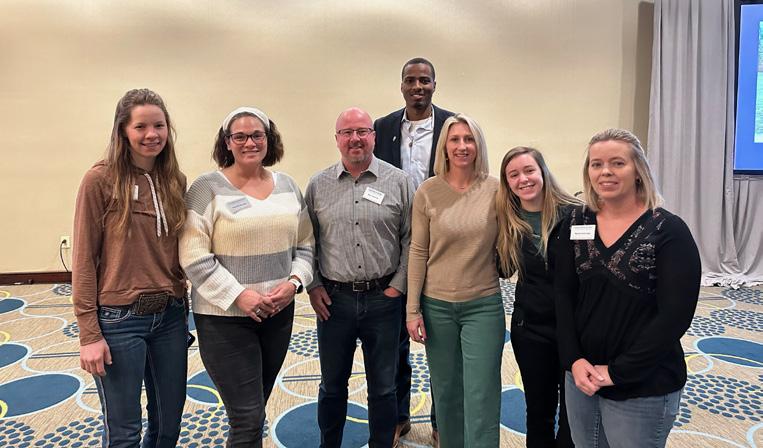
“I really enjoyed the presenters that they brought in for this program, especially the Battlefield Leadership program where we studied how George Washington and Abraham Lincoln endeavored to change themselves in order to become the great leaders we know them as today,” Heiniger says. “I found much of what they did was with the intention of bettering themselves and could relate to them in many ways.”
This program is designed for farmers across the country to come together and learn from each other as well as work on skills they are not comfortable
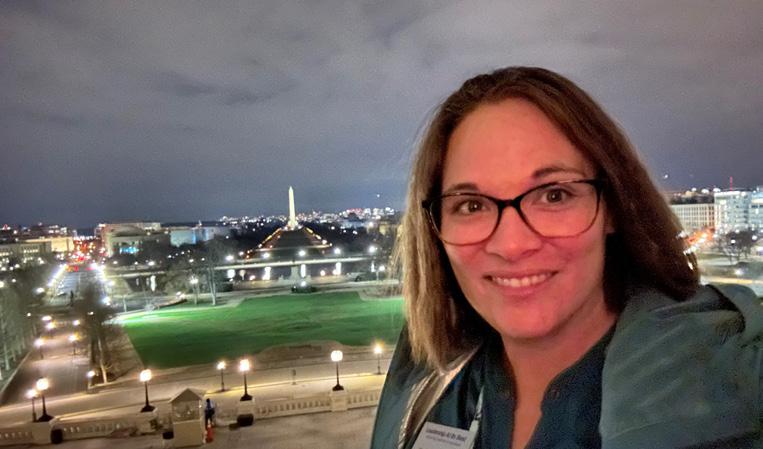
with. Heiniger says she was most looking forward to improving media interview skills, as that has been a weaker area. Through the media training, she learned primarily to have confidence in herself and what questions to ask to feel more comfortable and confident prior to the interview.
“I would definitely recommend this program to others in leadership roles as I believe that I have gained many useful skills that will assist me in the future,” Heiniger says.

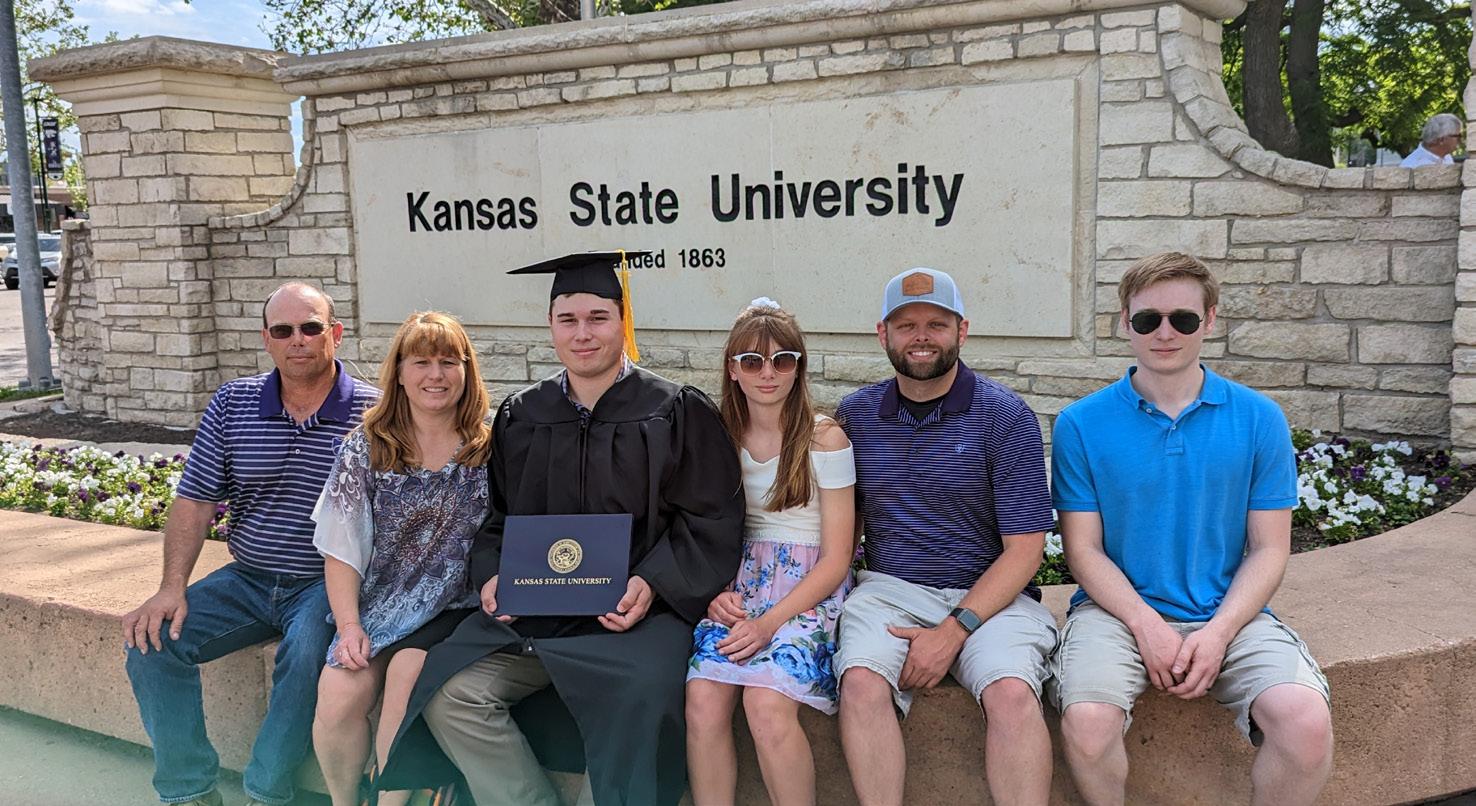
I am a lifelong resident of our family farm located in Anderson County. My wife, Reva and I have four children, Tyler, Ridge, Storm and Hope. Tyler and his wife, Nicole, live in Shawnee and Storm and his wife, Ashleigh, live in Topeka. Ridge is living on the family farm and Hope is still at home in eighth grade. We have two grandchildren, Tucker and Theodore. Reva is an elementary school teacher at USD 365 - Garnett.
I am the owner and operator of our farm and make the daily decisions for our operation. I raise soybeans and corn and run a cow-calf operation. Outside of the farm, I attend Saint Teresa church, where I serve on parish council and am a Knights of Columbus member in Westphalia. I am involved in Kansas Farm Bureau and a past board president and state committee member, as well as previously serving on the local USDA board.
I am also a 4-H leader.
Through my involvement with Farm Bureau, I knew about KSA because of the partnership. I joined the board when a former board member asked me if I would be interested in taking his place. Knowing that I could represent my district and would learn a lot from sitting on the board made my decision very easy.
It is imperative that we have an effective association to be a watchdog for all new and old issues that impact how we do business. KSA stays on top of policy around EPA, biodiesel, exports and more. This is my first full year as a member of KSA and I feel very confident that our commission, association and staff are working diligently to help Kansas soybean farmers succeed.
Foreign land ownership has been top of mind for many farmers. Senate Bill 446 introduced in February aims to prohibit acquisition of Kansas land by foreign entities unless authorized by the state land council, which would be established through the legislation.
The Kansas Soybean Association, along with Kansas Farm Bureau, Kansas Livestock Association, and Kansas Corn Growers Association lobbied against this bill, saying it infringes on private property rights and existing laws prohibiting corporate farming.
“Prohibiting all foreign nationals, especially those from neighboring and allied countries, is unnecessary,” KSA said in its opposition letter, further citing legitimate circumstances that warrant an exemption to the policy.
While KSA understands it might be necessary for the legislature to restrict foreign adversaries from owning land in Kansas due to national security risk, the association believes SB 446 unnecessarily restricts agricultural land markets and persons who can invest in agricultural operations.
Andy Winsor, Grantville, states it is important for KSA to react quickly about foreign land ownership and other agriculture issues to ensure beneficial bills are adopted over bills that would be detrimental to Kansas soybean producers. Taking a stand provides an example for other states and has the potential to stop issues in the beginning stages before it is too late.
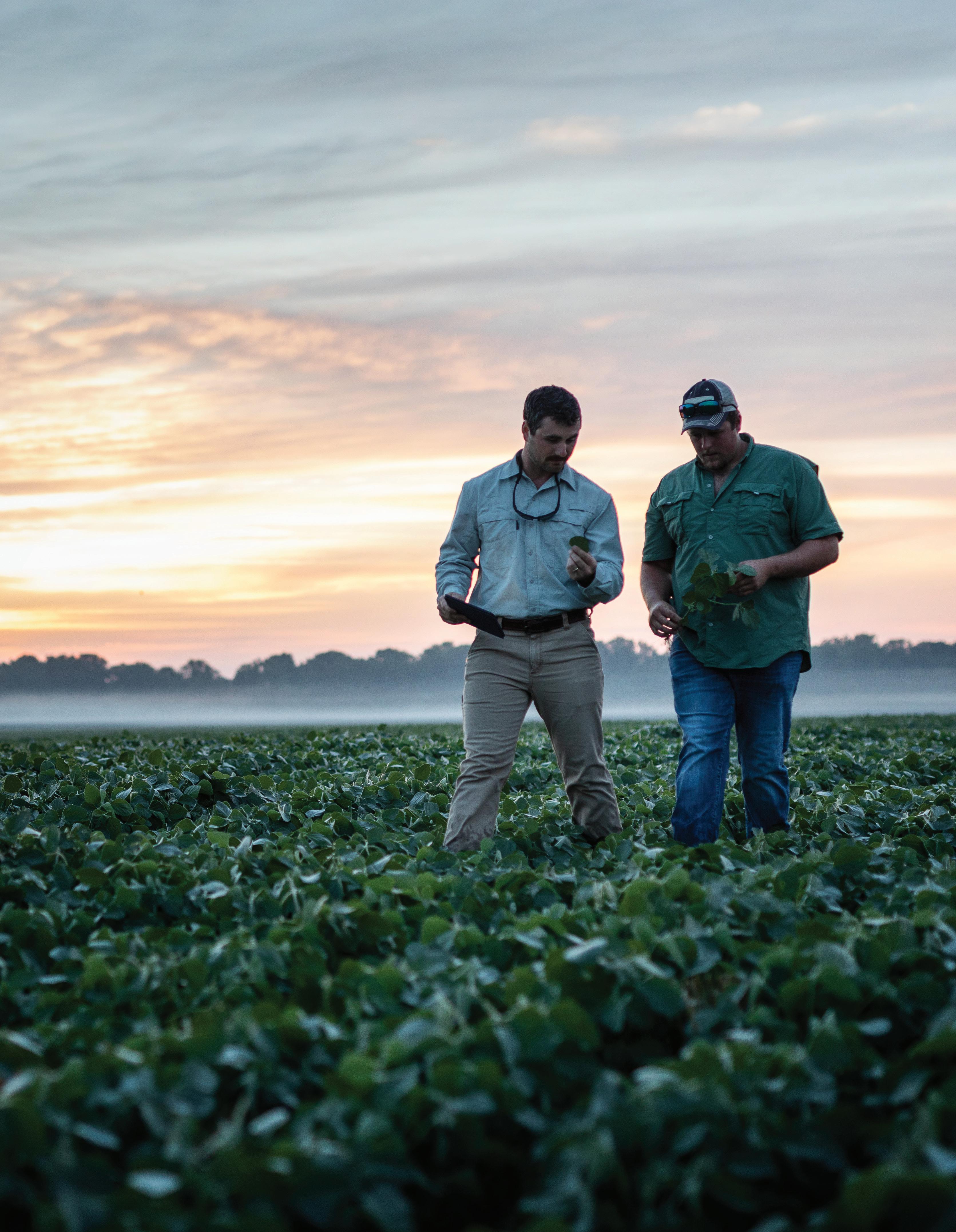
Whether you’re dealing with drought, flood, heat or other climate-related stress, the soy checkoff is working behind the scenes to diversify U.S. soybean genetics and increase stress tolerance. We’re looking inside the bean, beyond the bushel and around the world to keep preference for U.S. soy strong. And it’s helping make a valuable impact for soybean farmers like you.
See more ways the soy checkoff is maximizing profit opportunities for soybean farmers at unitedsoybean.org

AN IN-CROP APPLICATION OF ANY DICAMBA DO NOT APPLY DICAMBA HERBICIDE IN-CROP TO SOYBEANS WITH Roundup Ready 2 Xtend® (RR2X) technology unless you use a dicamba herbicide product that is specifically labeled for that use in the location where you intend to make the application. IT IS A VIOLATION OF FEDERAL AND STATE LAW TO MAKE AN IN-CROP APPLICATION OF ANY DICAMBA HERBICIDE PRODUCT ON SOYBEANS WITH Roundup Ready 2 Xtend® technology, OR ANY OTHER PESTICIDE APPLICATION, UNLESS THE PRODUCT LABELING SPECIFICALLY AUTHORIZES THE USE. Contact the U.S. EPA and your state pesticide regulatory agency with any questions about the approval status of dicamba herbicide products for in-crop use with soybeans

Preserving a family farm and its land can be a huge undertaking. Ray Flickner, Moundridge, was presented with an opportunity to carry on his family’s farm in the 1980s and has worked since to improve the land in hopes of keeping it profitable for future generations.
“God gave us many assets and opportunities in the world,” Flickner, a Kansas Soybean Association member, says. “I’ve always taken the position that if there is something you can do better than what was done before, you should do it.”
Flickner’s great-great-grandparents homesteaded the farm in 1874 and it is currently a 1,000-acre operation growing soybeans and corn on primarily irrigated land. Flickner’s forefathers had a sow and farrow operation, catfish farm and dairy where they sold the milk in old glass bottles during their respective time frames. Flickner studied agricultural education at K-State in the 1970s and taught for a few years in adult education arenas and junior colleges. During this time, he met his late wife, Susan, who was also a teacher. Flickner joined the Farm Credit system in 1980 and bought the farm from his parents not long after with the intent of saving it and keeping it in the family.
Flickner Farms received the 2023 Kansas Leopold Conservation award, which recognizes extraordinary achievement in voluntary conservation by agricultural landowners, according to the Sand County Foundation website.
“It was very humbling to receive the award,” Flickner says. “We didn’t do it for the recognition, we did it because we thought it was the best thing to do.”
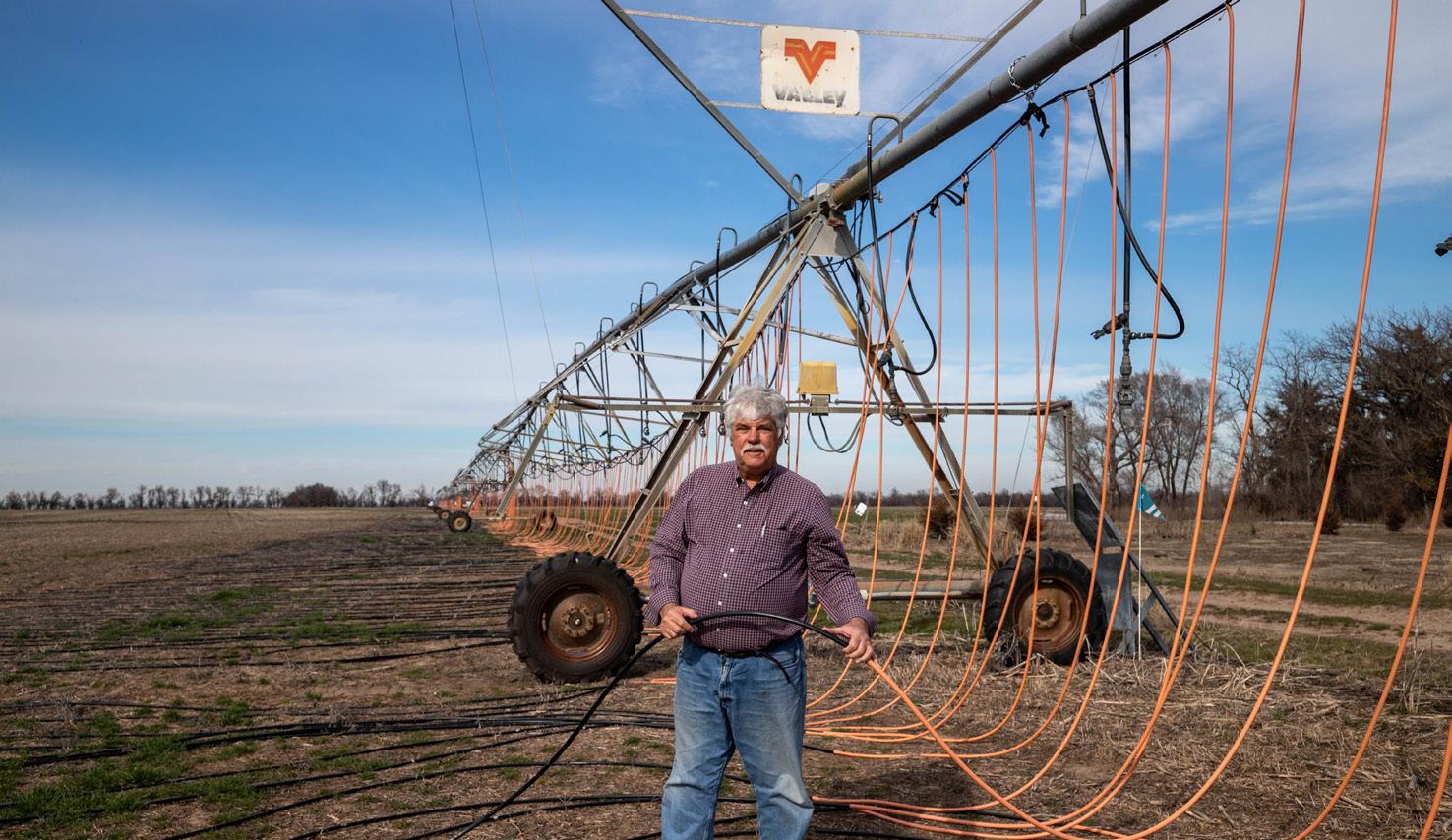
Water conservation has been a priority in the operation for many years. Flickner says subsurface drip was a major turning point after he started the practice 23 years ago and added drip tape on some acres. The Department of Water Resources determined the technology uses 40 percent less water than the county average. If it could drop another 10 percent, Flickner says, the farm would be sustainable enough to recharge the aquifer by itself.
Part of the success to win this award comes from Ray and Susan’s dedication to sharing their experiences with others. With their backgrounds and passion for teaching, Flickner believes that is why they always shared their practices and innovations with others. Part of this outreach involves working with Kansas State University professors Dr. Ignacio Ciampitti and Dr. Sarah Lancaster and their graduate students in protein and weed studies.
“We strongly believe that you try to teach those around you and those that come behind us things they can do to further improve and help the assets we have,” Flickner says.
As the number of people involved in production agriculture decreases, so does the amount of people in political offices who understand the industry and how it impacts them. KSA works hard to ensure farmers have the right to make decisions about their operation and utilize the resources available. One way to do this is by engaging with legislation and elected officials.
Flickner testified in front of the Senate Ag Committee in April 2023 at Senator Marshall’s request. As he visited with different senators, many did not know much about agriculture. He says this is one reason why being a member of KSA and other commodity organizations is important; it gets the American farmer’s story in front of legislators and connects them with where their food and other materials comes from.
“I’ve always believed you should support those that work with you,” Flickner says. “If you’re growing soybeans, you should belong to the Kansas Soybean Association, because it is important to come together as a unified voice and support those that are working to protect us.”
Kansas soybean farmer-leaders attended Commodity Classic this year in Houston as part of the over 11,500 record attendance. From viewing cutting-edge technology and engaging in meaningful conversations to learning operational strategies and advocating for their peers, Kansas soybean farmers immersed themselves in the event and represented the state and its priorities well.
Commodity Classic provides a variety of learning sessions and panels pertinent to farmers, including market trends, renewable fuels, connecting with consumers, policy, technology and others. Many farmers attended these sessions to find new knowledge and tools relevant to their operations to increase profitability and sustainability.
This year’s trade show welcomed more than 400 vendors encompassing commodity organizations, equipment manufacturers, weed and disease protection products, farmer networks and more. Some report spending six hours or more having conversations with companies.
Directors and Commissioners explore the tradeshow at great lengths to learn about potential implements to maximize farm efficiency and ask questions with company representatives.
“I like to talk with the people whose company I use on the farm and build a more personal relationship with them,” John Pracht, district three director, says.
Esteemed astronaut Mike Massimino delivered the keynote address during the general session. He encouraged the audience to stay dedicated to their
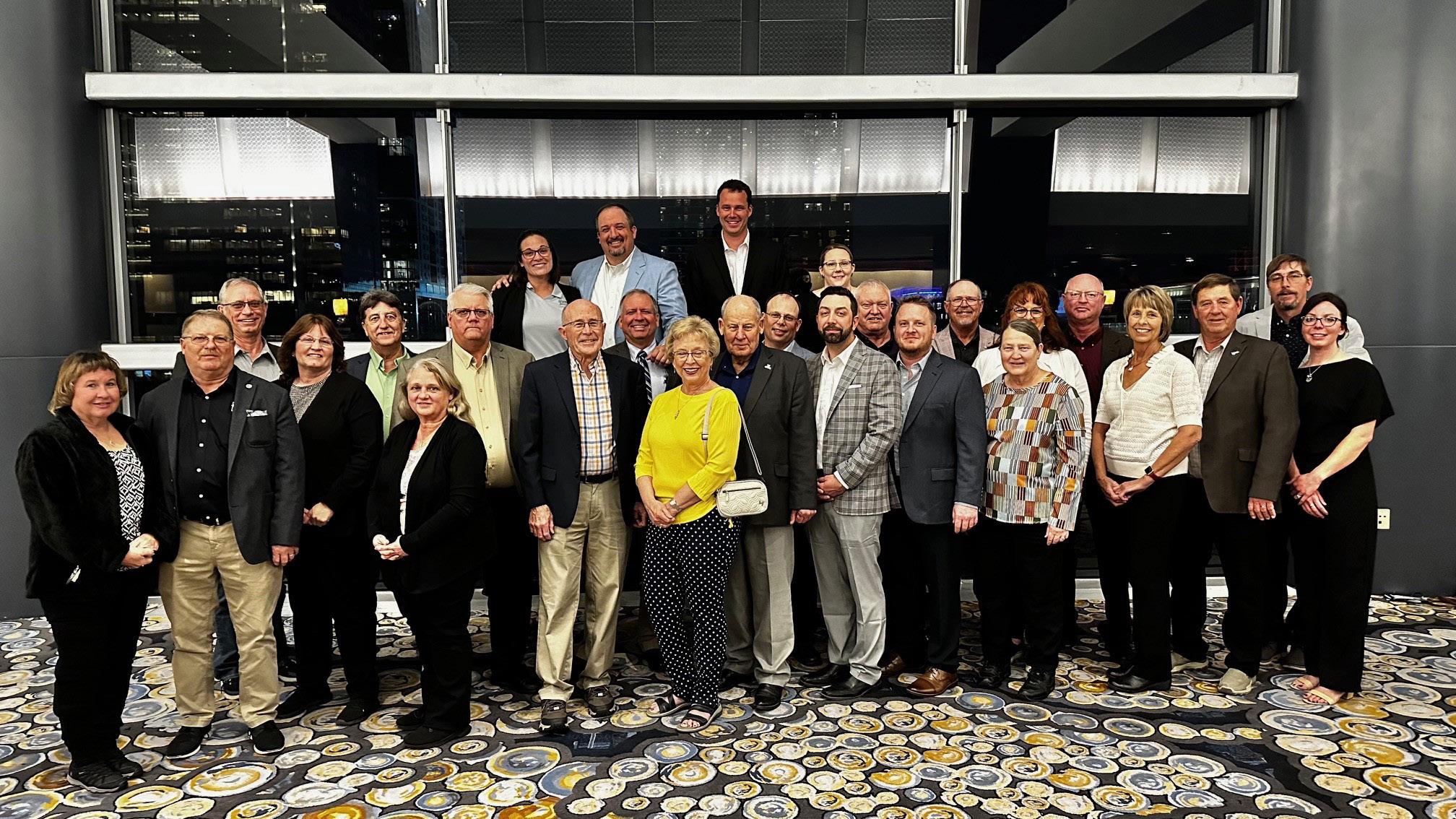
final goal and not give up after the first fail.
A panel of national commodity leaders discussed current successes, challenges and priorities. Josh Gackle, ASA president, says the organization is focused on a farm bill improving risk management tools like crop insurance programs.
Secretary of Agriculture Tom Vilsack and Environmental Protection Agency Administrator Michael Regan exhibited their working relationship and unveiled the new Office of Agriculture and Rural Affairs within EPA.
“I was really pleased to see Sec. Vilsack and Administrator Regan have a good working relationship,” Teresa Brandenburg, KSA chairwoman, says. “I am excited to have an office within EPA that is strictly dedicated to agriculture and can provide quicker access to knowledge as Administrator Regan and his team make decisions.”
“Reconnecting with others from my young leader class was worth the trip in itself,” Daniel Anderes, Young Leader representative, says. “These people
will most likely be involved in the same meetings I am moving forward, and it always helps to know people from other states involved in the same industry.”
Commodity Classic provides multiple learning sessions and opportunities to speak with companies about where the industry is at and where it can go.
“With rising input costs and markets, I was really excited there was a session focused solely on mental health,” Adam Phelon, Melvern farmer, says. “This is the type of content that’s extremely important for our farmers to receive.”
Policy voting delegates rounded out the week with ASA’s policy resolutions session. Six association board members participated in state caucuses earlier in the week with Nebraska, Oklahoma and Texas to discuss amendments ahead of the voting session.
Kansas delegates were involved in votes and discussions about new and adopted policy. Teresa Brandenburg, association chairwoman, moved to change wording about ASA’s opposition to the use of eminent domain.
The new language amendment failed as other states believe this should be a state only issue and not a national issue. KSA has already put this issue in their policy priorities for the year.
“We don’t want to be in the way of new infrastructure but need to take into account that whatever infrastructure is put in is not just a one-year deal and it will be there for the next generation,” Scott Gigstad, Kansas Soybean Association president says. “If it’s going to be used then landowners need to look down the road of what the value is going to be with the changes and not what it is currently.”
Ron Ohlde, Kansas Soybean Commission Chairman, says he enjoys having conversations
with other producers to know what they are thinking and what they need, because it is a shared thirst for knowledge and growth.
Many farmer-leaders are excited about the future for renewable fuels, including biodiesel. Association board members and staff had a meeting with Pepsi Co. to discuss corporate use of biodiesel and their drive for a cleaner environment.
ASA hosted their annual awards ceremony to honor and recognize individuals making a large impact in the soybean industry. Ed Anderson, Kansas Soybean research consultant, received the Tom Oswald Legacy Award for his work in advancing soybean research and bringing to-
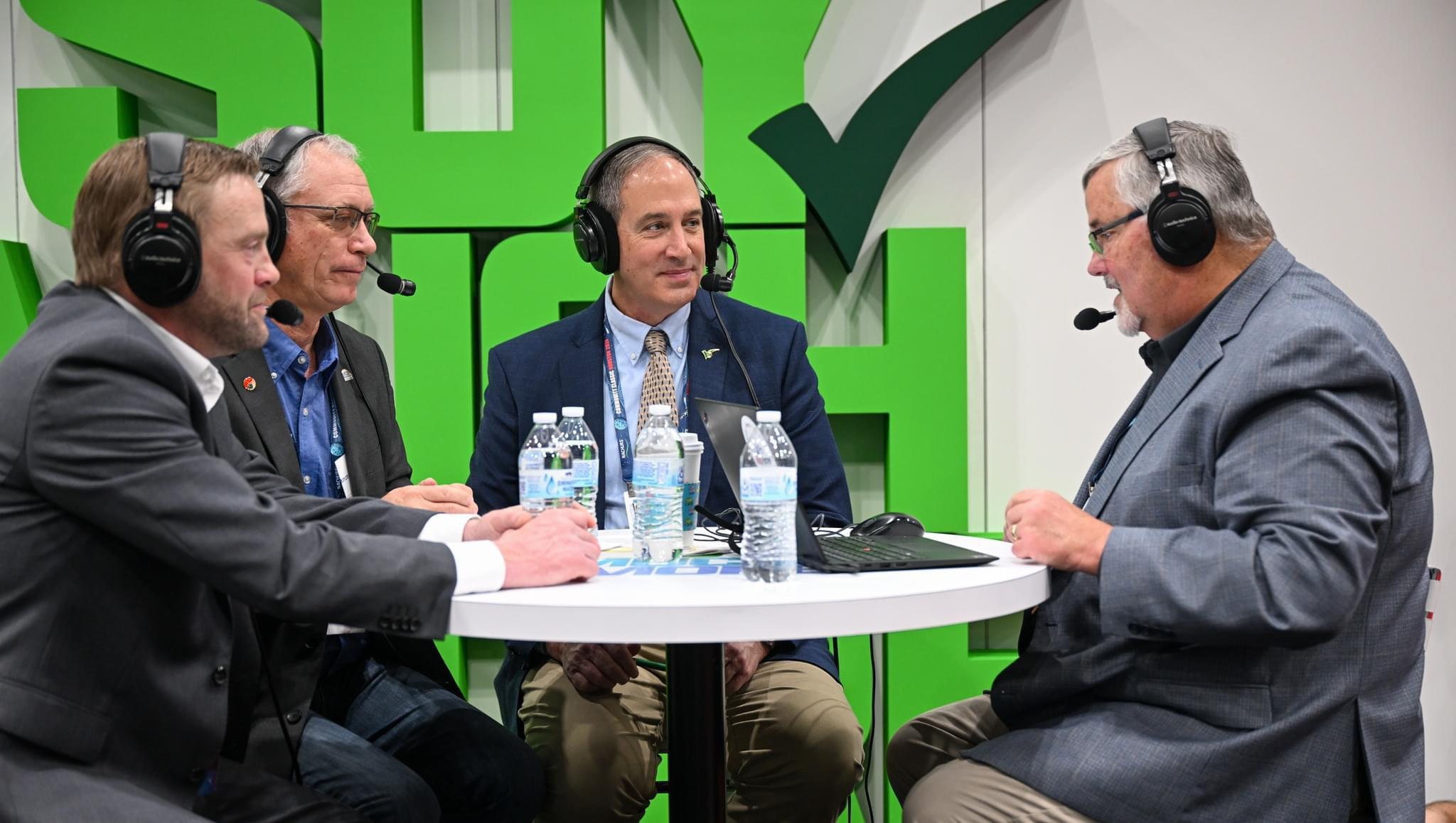
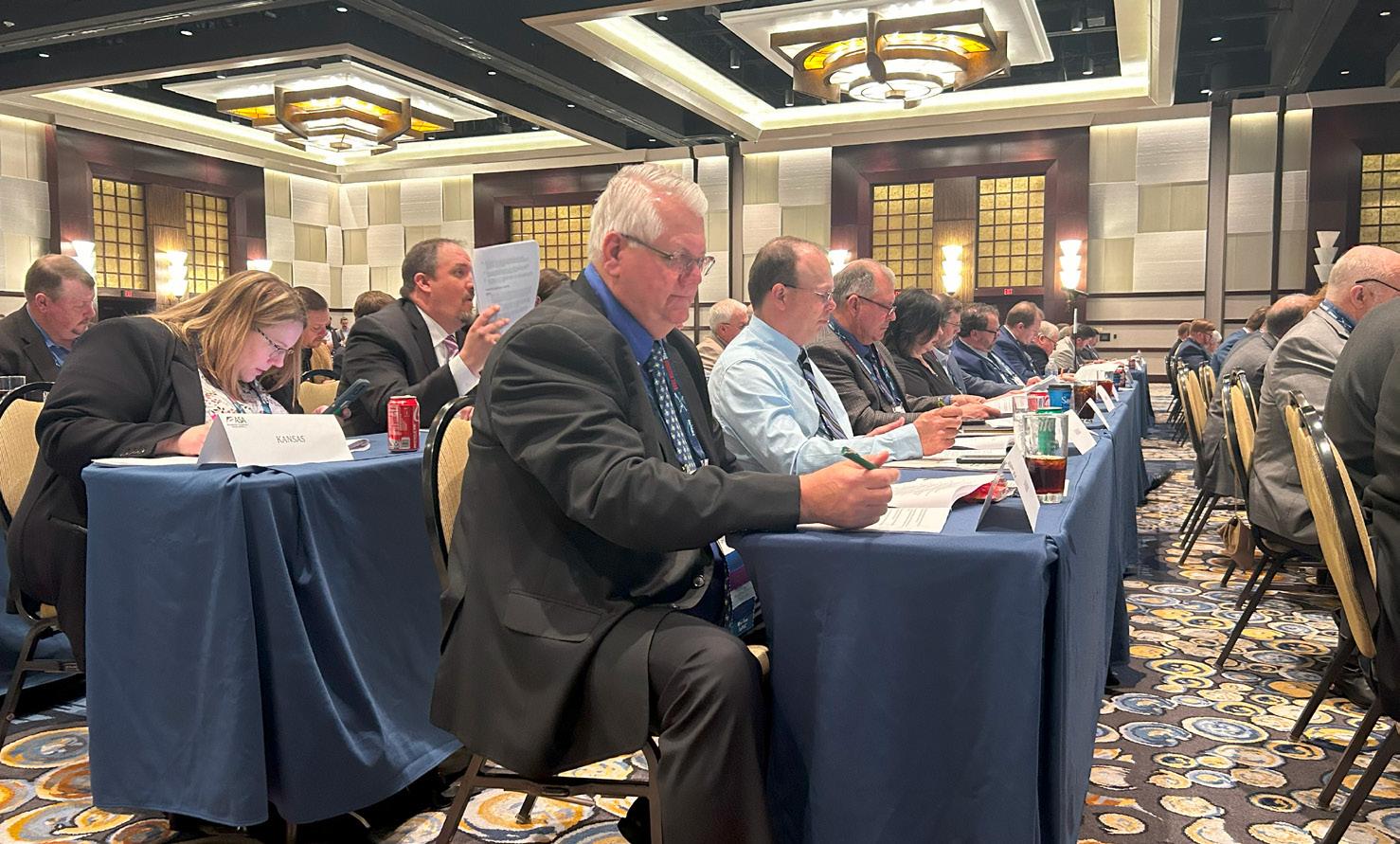
gether scientists to work collaboratively for soybean farmers. KSA and KSC continue to work together in their different roles with complimentary missions: to improve profitability for all Kansas soybean farmers. Attending Commodity Classic gives them opportunities to see new technology, learn new techniques and network with peers across the country.
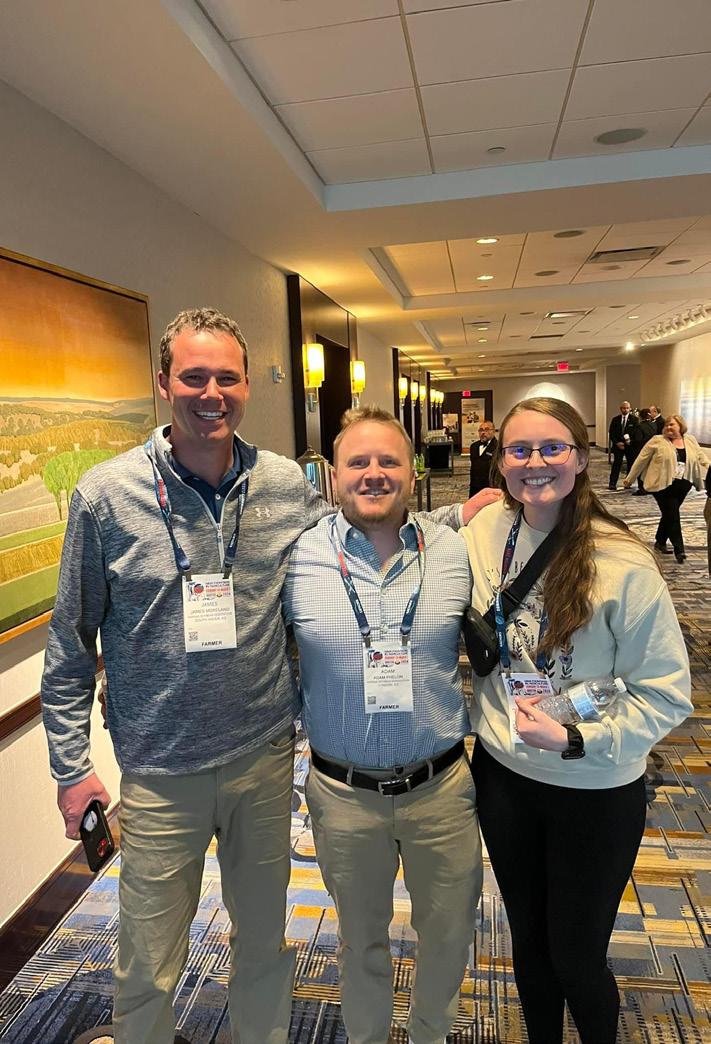
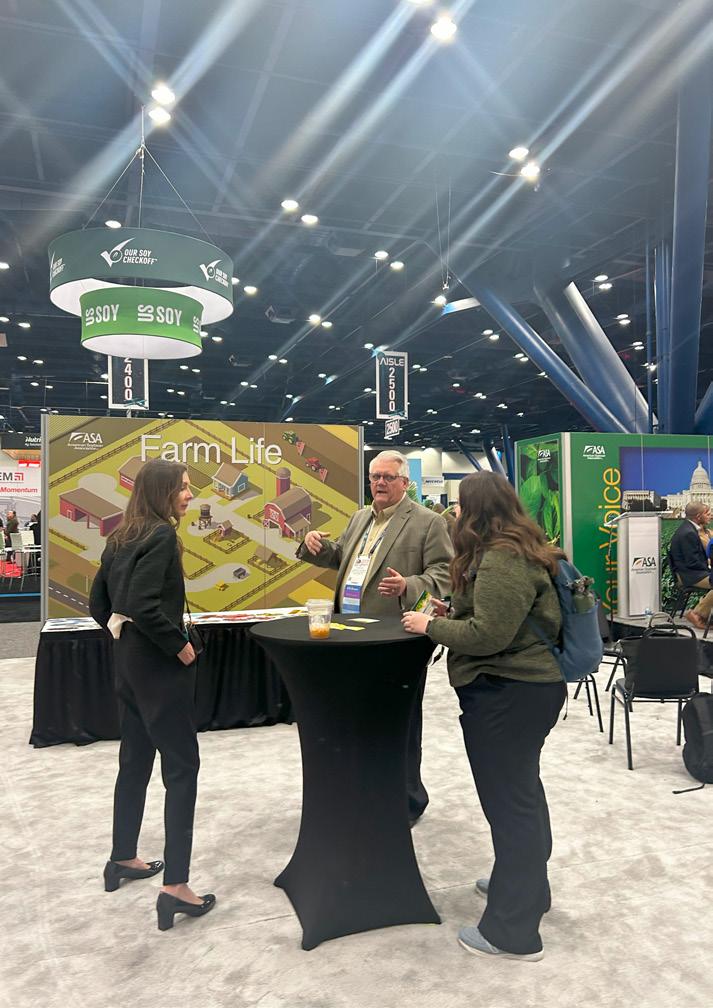











Patton connects consumers with their food sources
It is said the quickest way to a person’s heart is through their stomach. For soy foods, this means literally and figuratively. The FDA claims that “25 grams of soy protein per day, as part of a diet low in saturated fat and cholesterol, may reduce the risk of heart disease.”
Charlene Patton, consumer media specialist, shares delicious soy recipes and their benefits through demonstrations on WIBW, KOAM and KAKE each month. Patton connects consumers to the ways soy fits into their everyday lives and where they already use soy. She builds trust in soy foods in hopes to encourage home decisionmakers to incorporate soy ingredients into their meals.
There are many ways you can enjoy soy proteins including meat, tofu, edamame and more.
Soy recipes can be found on our website at kansassoybeans.org/ soyfoods/consumers.
Engaging with K-State students, instilling valuable skills
The Kansas Soybean Commission hosted an etiquette dinner with 70 K-State College of Ag students from various majors. Students networked with peers and industry professionals as they were guided by Laura Rook, K-State College of Business Program Manager, about proper dinner etiquette. Farmer-leader Scott Gigstad was the emcee, sharing his personal experiences with students and the importance to own your mistakes. Other farmers who attended were Ron Ohlde, Adam Phelon and Mike Musselman.
With our investments in K-State Ag and these students’ future careers touching soybeans in some capacity, exposing them
Farmer-leaders gathered March 15 for the March board meeting. Policy committee members provided an update on current legislative actions of importance to soybean growers, including SB 446 and HB 2648.
Directors discussed strategies to increase value of the Kansas Soybean Expo. The board set dates for the 2024 Corporate Tour, choosing July 2527 to visit the northeast corner of the state. Local farmers may have the opportunity to join the tours and dinner.
Young Leader Ryan Delaney brings a new perspective as a farmer and employee at Sims Fertilizer & Chemical. Delaney says he is excited to continue his journey on the board as he is passionate about policy and his livelihood depends on it.
Jessie Smith, Bunge representative, informed the board of improvements to the Emporia location, including a new pit for faster unloading and an easier process.
to the basics of soybeans piques their curiosity and gives them foundational knowledge. When we reach college students it introduces them to the purpose and necessity of the checkoff and starts to build their trust in it which is beneficial in the future. The progress potential in agriculture starts in the youngest generations, putting our organizations in front of them makes it easier for them to recognize the importance and potentially hold leadership roles in the future. It also helps them develop and practice skills in a friendly, low stakes environment.
“I really enjoyed attending the etiquette dinner because it’s a great opportunity to make career connections and improve professional development skills,” Kady Figge, K-State Agricultural Communications and Journalism student, says.
In the beginning of February, the U.S. District Court of Arizona ruled that the Environmental Protection Agency made a procedural error in issuing several dicamba registrations in 2020 for over-the-top use on dicamba-tolerant soybeans and cotton. This ruling quickly became top of mind for many soybean farmers across the country.
More than 50 million acres of soybeans were affected by this ruling, which came after farmers already made 2024 crop decisions. The Kansas Soybean Association signed on to a letter from the American Soybean Association. This letter asked EPA for guidance on existing dicamba stock and next steps ahead of the fast-approaching planting season.
On February 14, the EPA issued an existing stock order on OTT dicamba, allowing for sale, distribution and use of existing stocks that were in the hands of retailers, co-ops, distributors and growers as of the February 6 ruling date.
Policy committee members
Jared Nash and Adam Phelon joined Charles Atkinson, American Soybean Association director, in Washington, D.C., for the ASA March board meeting and Capitol Hill visits.
Speaking with Kansas legislators builds trust and opens the opportunity for Kansas soybean farmers to be their go to about agriculture issues. Top of mind during meetings with legislators were the 2024 farm bill, crop protection and regulatory issues.
“There is a constant push by outside interests to take away the rights of our farmers without ever being on a farm themselves,” Adam Phelon, director, says. “Without taking our voice to Capitol Hill, legislators will make decisions without the full information.”
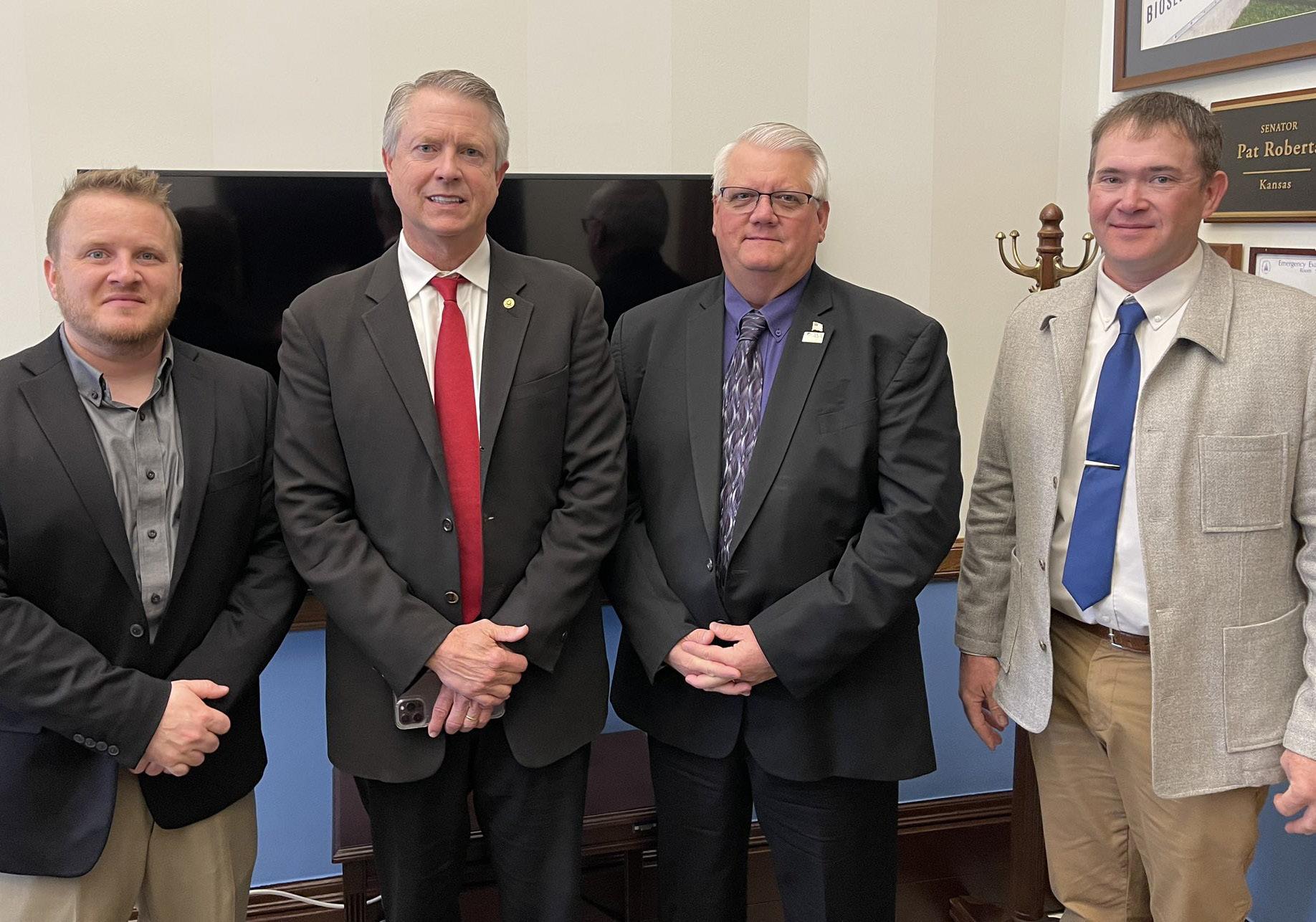
Directors met with Sen. Marshall and staff, Sen. Mann, Rep. Estes’ staff, Rep. LaTurner and staff, Rep. Davids and staff, and Sen. Moran’s staff.
Herbicides continue to be at the forefront of many American farmers’ mind and the agricultural organizations who work on protecting the use of inputs the Environmental Protection Agency issued a memorandum with USDA regarding pesticide use and compliance with the Endangered Species Act.
USDA’s Natural Resources Conservation Service guidance helps farmers carry out voluntary practices that improve environmental health and reduce off-site movement of pesticides. This memorandum says that EPA can include NRCS conservation practices on pesticide labels and growers can use to fulfill label requirements.
The EPA has proposed several pesticide registration orders that could significantly affect when and how farmers can use herbicides. EPA must abide by obligations of the Endangered Species Act, including the Vulnerable Species Pilot Program and Herbicide Strategy.
Directors also received updates about ASA, Commodity Classic, WISHH and the finance committees.
Looking for something new to listen to while in the tractor? The War Against Weeds podcast is a tool that provides farmers with vital information about weed resistance and management for their operation. The podcast is cohosted by agronomists Dr. Sarah Lancaster, Kansas State University, Joseph Ikley, North Dakota State University and Dr. Alyssa Essman, Ohio State University.
Every Wednesday, the hosts sit down with peers, scientists and farmers to discuss the latest updates in weed science. Scott Gigstad, Everest, sat down with the hosts and farmer-guests to discuss how weed practices have changed over the years and where future practices are headed.
“I really enjoyed hearing how the other farmers were handling weeds,” Gigstad says. “A lot of the time, we battle the same issues and can learn from each other about the most efficient practices for each operation.”
Each year, the Kansas Soybean Association hosts a legislative luncheon at the statehouse to connect with senators, representatives, government officials and staffers.
The Feb. 20 luncheon marked another year of success with over 300 decisionmakers stopping by for a meal and conversation. Farmers from the KSA board elevated member priorities and strengthened the association’s reputation as a go-to source on critical agricultural issues.
“The legislative luncheon is important as it gives board members a chance to introduce ourselves and visit with legislatures and staffers about issues affecting Kansas farmers,”
Scott Gigstad, Everest soybean farmer, says. “It also gives them an opportunity to ask questions and the farmer perspective on current issues,” Scott Gigstad, Everest soybean farmer, says.
Connections came from more than conversation. Lunch showcased soybean products from vegetable oil in the salad dressing and lecithin in the chocolate chips cookies, to pork, poultry, dairy and beef in the soup and sandwich items. Placards along the serving line keep the discussion of what soybeans do, how they impact everyday lives and why they matter.
“The value we get as soybean farmers is the chance to collaborate with our state officials and their staff in order to build
a more personal relationship with them,” Gigstad says.
Gigstad says KSA strives to be a go-to source for information when making laws and regulations that pertain to not only the Kansas soybean industry but to the entirety of Kansas agriculture.

For more than 50 years, KSA has provided representation for Kansas soybean farmers. A group of Kansans with varying roles in agriculture recognized the need for an organization to work on behalf of soybean growers in the state. The purpose of creating this organization was to “bring together all persons interested in the production, marketing, distribution and utilization of soybeans and soybean products” per the article of incorporation.
KSA’s efforts rely on the membership dues of soybean growers and affiliates to operate and

provide value in the partnership.
“My grandpa always told me ‘many hands make light work,’” Brett Neibling, Highland, says. “The more members we have, the stronger our voice is in the statehouse and Washington, D.C.”
For Neibling, strength in numbers is important when it comes to the work KSA does, including recent work to receive answers about existing dicamba stock after a surprise court ruling.
KSA reacted quickly by signing on to a letter from ASA urging
EPA to provide answers about next steps.
EPA issued an existing stock order which allows for sale, distribution and use of existing stock that were in the hands of retailers, co-ops, distributors and growers as of Feb. 6.
“I received many calls asking what KSA is going to do,” Neibling says. “It is important to have somebody to lean on when issues arise.”
Invite a neighbor to join the association as KSA works diligently alongside farmerleaders to protect the rights of Kansas farmers. Call the office at 785-271-1030 or visit kansassoybeans.org/membership/.
As consumers increasingly recognize the value of soybean products, Kansas producers find themselves at the forefront of meeting this growing demand. From nutrient-rich food to animal feed and renewable fuels, soybeans play a vital role in our society. And with Bartlett’s new crush plant in Cherryvale, Kansas, the surrounding producers are poised to reap the benefits of having an end user processor as a new point of competition for their yellow soybean production.
After nearly two years of construction, the facility — located just South of Cherryvale at the intersection of Highway 169 and Highway 160 — is now accepting spot and contracted truckloads of yellow soybeans. Producers who choose to bring their grain to Cherryvale will experience efficient unloading times at a state-of-the-art facility, one that makes use of the latest technology and infrastructure. Running at peak efficiency, Bartlett can process over 25 trucks an hour, when
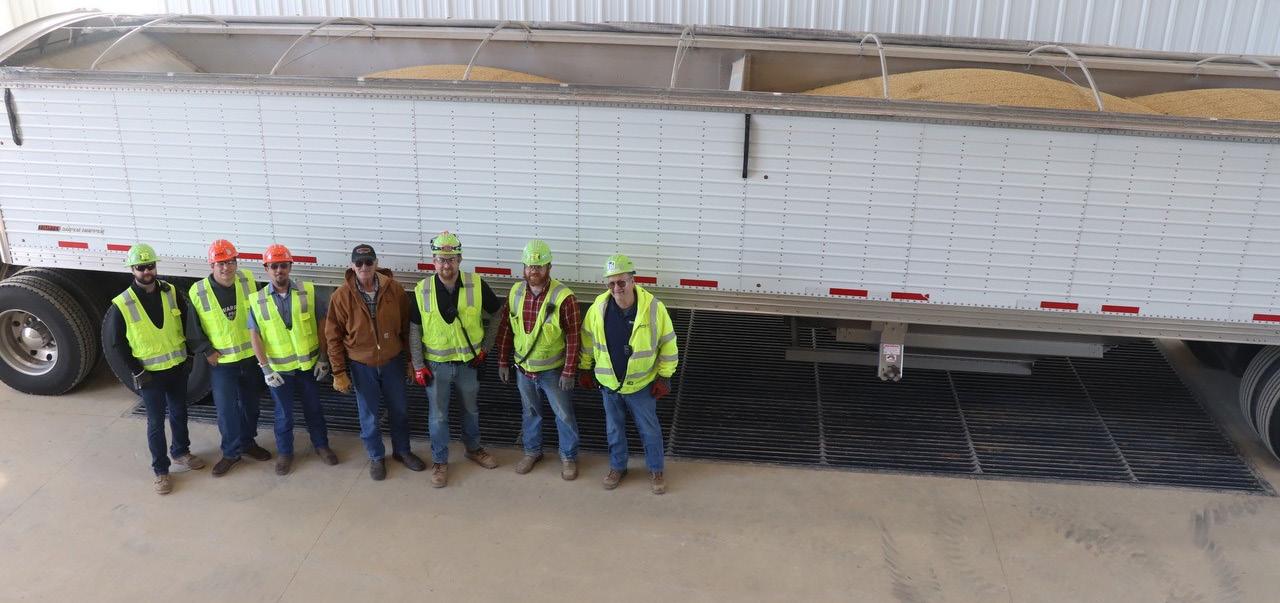
processing begins we will be using roughly 140,000 bushels per day, or +45 million bushels annually.
The crush plant also excels in efficiency on the distribution side. By utilizing both a brandnew rail network and trucking network, processed soybeans can be sent across the country as meal, feed hulls, and sustainable fuel .
The launch of Bartlett’s Cherryvale crush plant signals not only a response to the rising demand for soybean products, but also a commitment to global food security and environmental sus-
The Farm to Fly Act aims to advance sustainable aviation fuels and recognize the critical role U.S. agriculture plays in producing SAF and the Sustainable Aviation Fuel Grand Challenge goals, according to the bill, HR 6271.
Sens. Jerry Moran, Amy Klobuchar and Joni Ernst introduced Farm to Fly Act companion legislation to the Senate in early January.
The American Soybean Association endorses the bipartisan legislation because it helps
tainability. Farmers especially will benefit as they are able to explore a purchasing structure that works best for them, from spot business, cash contracts, basis contracts, and a variety of selling options. Whatever the choice, Bartlett aims to provide the best rates possible for its producer partners.
Those interested in bringing their yellow soybeans to Bartlett’s new Cherryvale crush plant can call Nolan Allison at (620) 702-1050, or visit www. bartlettco.com/cherryvale.
create new markets for U.S. agricultural product, clarify eligibility for SAF within current USDA programs and establish a common definition of SAF for effective contributions from U.S. crops.
Azure Sustainable Fuels Corporation intends to bring the opportunity to Kansas. The company announced plans to construct the state’s first SAF refinery close to Bartlett’s soybean-crushing facility in Cherryvale. The close proximity ensures a strong feedstock supply and positively impacts basis for
soybean farmers in southeast Kansas.
This new legislation will continue the development of this product which may increase the value of soybeans as it opens more opportunities in the market.
While both SAF and biodiesel are produced from non-petroleum-based renewable feedstocks, there is a difference. SAF is produced through hydrotreatment and biodiesel is produced through transesterification.
Corporate partners and advertisers are vital to the success of the Kansas Soybean Association. They provide the Association with financial support and link our state’s soybean farmers to the allied industries that provide inputs and capital to manage our enterprises. KSA also relies on corporate partners to keep us up-to-date with the latest breakthroughs in production technologies, and we all work together to create and implement environmental and trade policies that benefit the soybean industry.


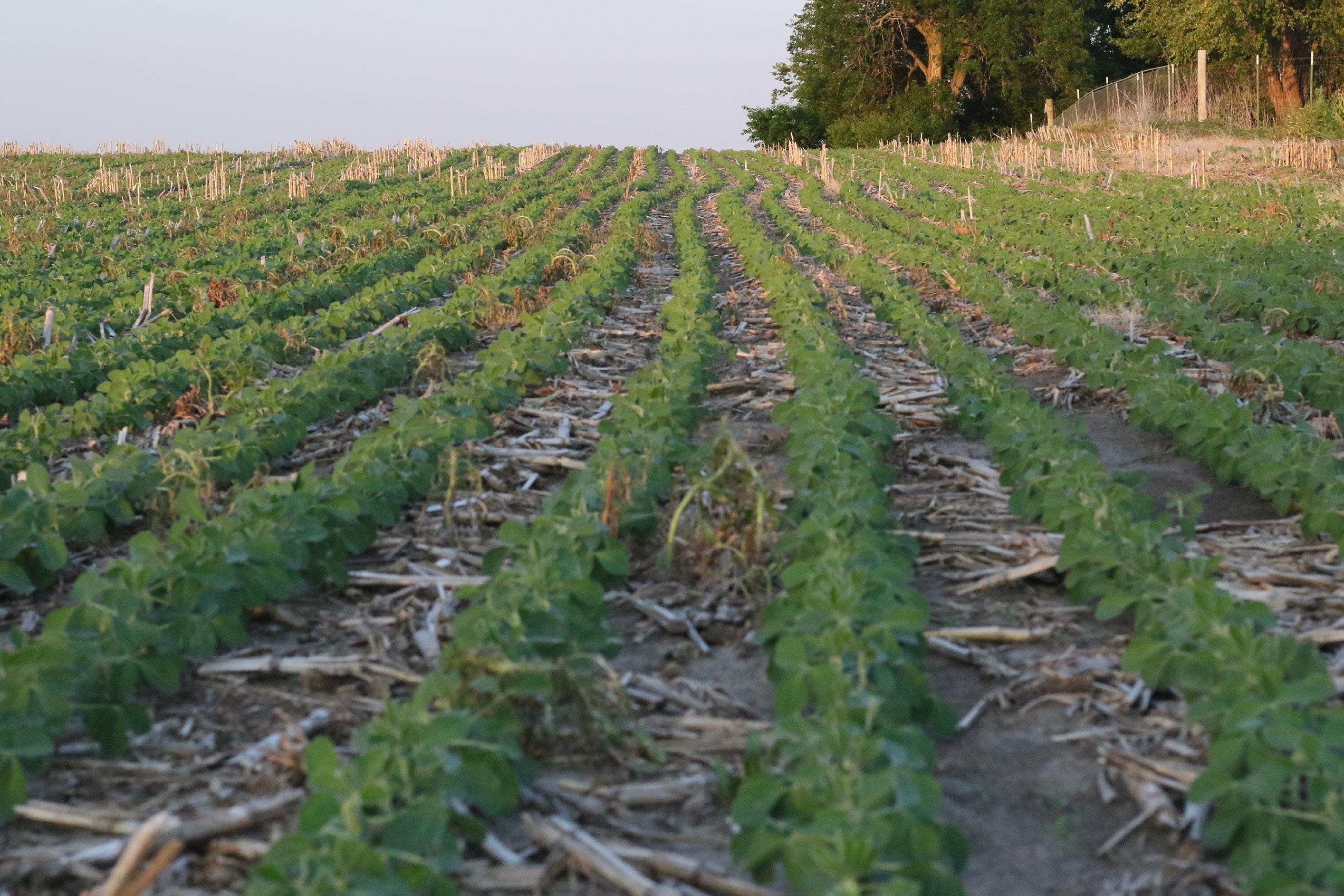
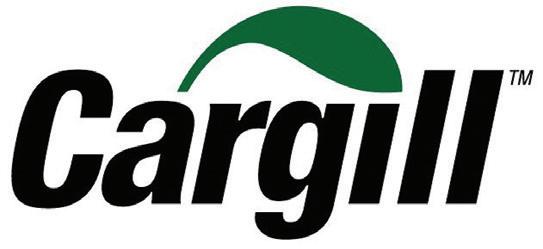
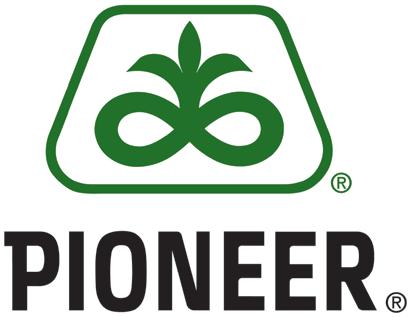




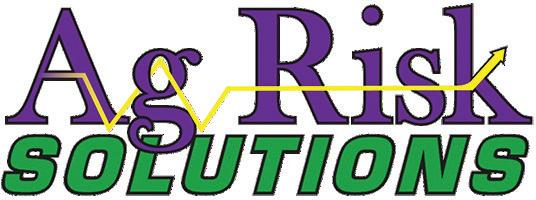
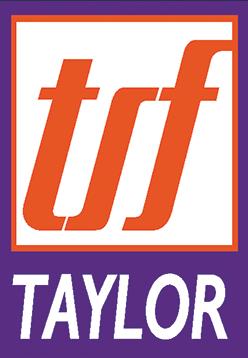
April
May
May
